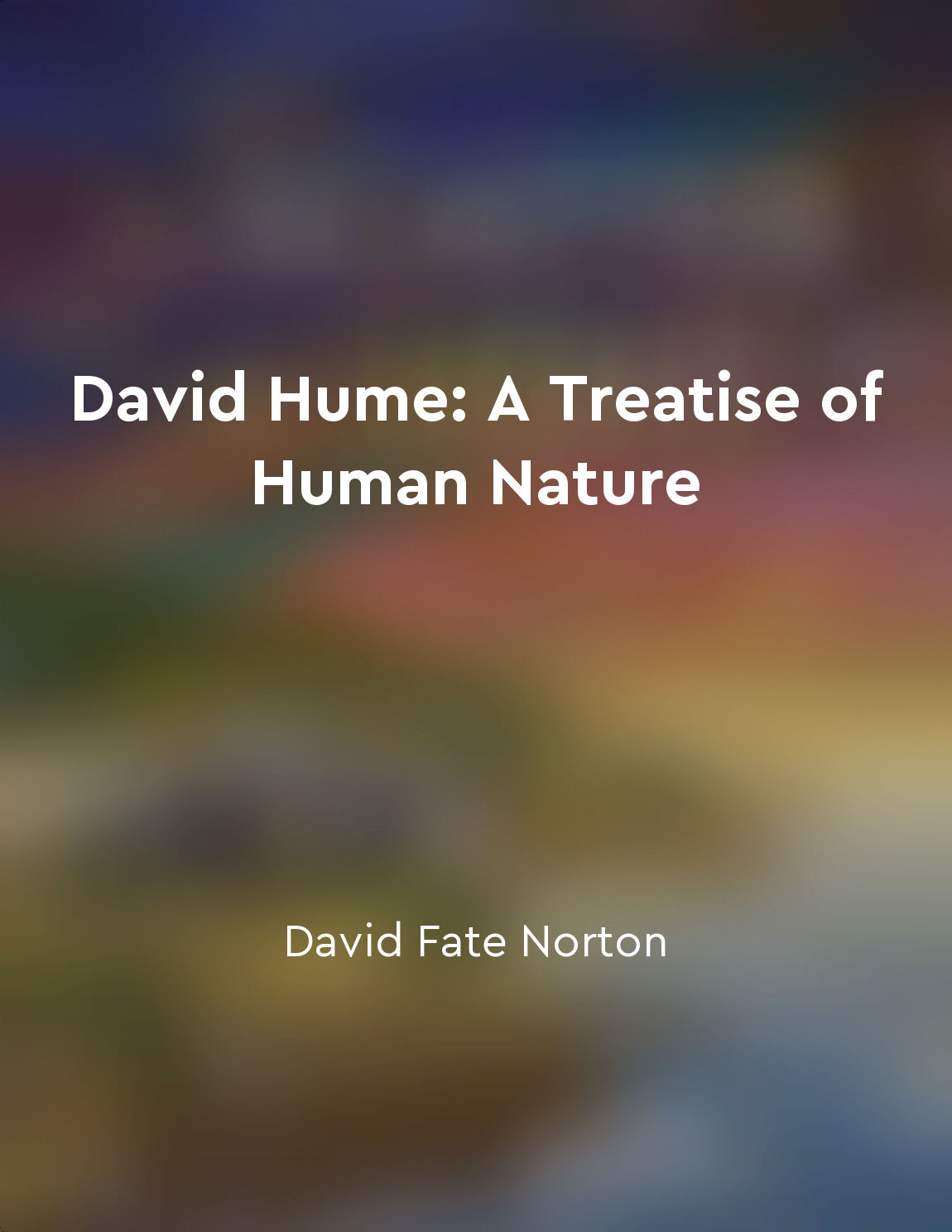Reason the slave to passions from "summary" of David Hume: A Treatise of Human Nature by David Fate Norton,Mary J. Norton
People are prone to strong feelings and emotions, such as anger, fear, sorrow, and joy, that can lead to irrational and passionate behavior. These passions shape our lives, influencing our decisions, thoughts, and actions and often serving as the driving force of our behavior.- Emotions and passions are driven by instinctive forces deep within us. We often become slaves to the intense sensations they evoke, unable to control them and ultimately succumbing to them.
- Humans have a special capacity for being ruled by emotions which lead to irrational thinking and result in impulsivity and recklessness.
- It is important to remember that we should allow ourselves to feel passionate about things, but to avoid becoming so consumed by emotion and desire as to lose the power of reason and sound judgement.
- People cannot always rely on reason alone because it is difficult not to be influenced by emotional wills that can overtake even our most reasoned thoughts.
- Rationality is an essential part of reasoning out decisions but it can be easily overwhelmed by desires that seem to take over our being.
- As human beings, we strive for balance between existential desire and reason, but sometimes it is difficult to keep those two elements in harmony.
- For humans, passions often outweigh logic and critical thinking making it hard to take rational steps towards progress.


